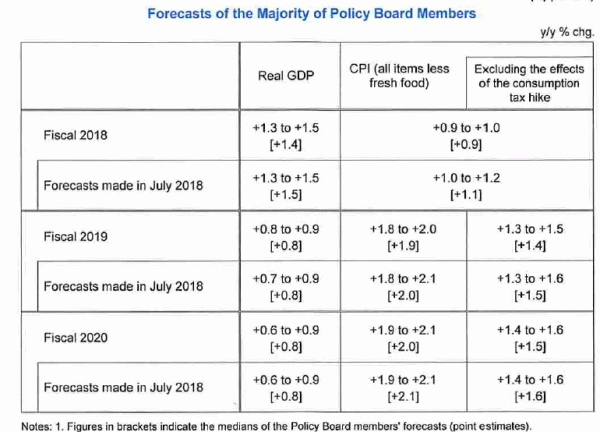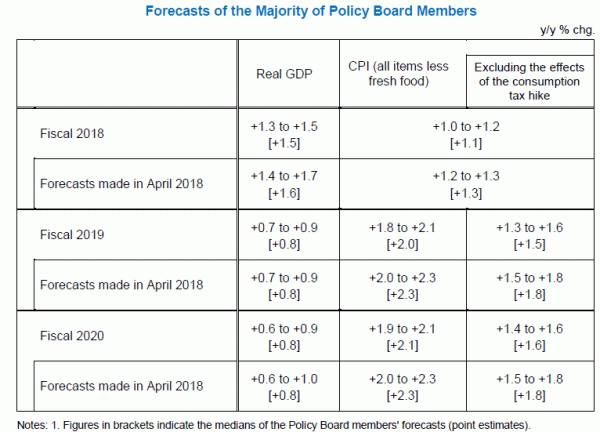BoJ left monetary policy unchanged today as widely expected, by 7-2 vote again. Short term policy interest rate is held at -0.1%. On long term interest rate, BoJ will continue with asset purchases to keep 10 year JGB yield at around 0%. G. Kataoka dissented again, pushing for more monetary easing due to “heightening uncertainties regarding development in economic activity and prices”. Y. Harada dissented because “allowing the long-term yields to move upward and downward to some extent was too ambiguous”.
In the Outlook for Economic Activity and Prices report, BoJ noted that the economy is likely to continue to grow above potential in fiscal 2018. For fiscal 2019 and 2020, the economy is expected to continue on an “expanding trend”, partly supported by “external demand”. But growth is projected to decelerate due to a “cyclical slowdown” in business fixed investments and the scheduled sales tax hike.
CPI continued to show “relatively weak developments” comparing to growth and labor market. Though, BoJ maintained that “further price rises are likely to be observed widely and then medium- to long-term inflation expectations are projected to rise gradually”. Thus, CPI will gradually increase towards 2% target. On risks, BoJ said both economic and prices risks are “skewed to the downside”.
In the updated economic projects, fiscal 2018 growth forecast was downgraded from 1.5% to 1.4%. Growth forecasts for 2018 and 2019 were kept unchanged at 0.8%. Fiscal 2018 core CPI projection was lowered notably to 0.9%, down from 1.1%. For fiscal 2019 and 2020, ex-sales-tax-hike core CPI projections were also lowered, to 1.4% and 1.5%, down from 1.5% and 1.6% respectively.
Also, note that the ex-sales-tax-hike core CPI projections are notably lower than April’s forecasts, at 1.8% in fiscal 2019 and fiscal 2020 respectively.


